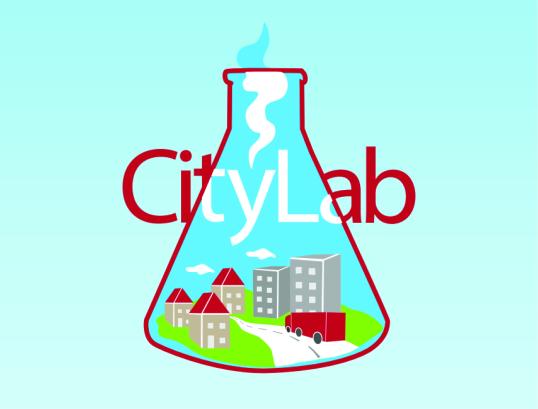- Topic
- Public and stakeholder involvement
- Urban freight/city logistics
- Country
- Italy
- Resource type
- Case study
First published on 23 June 2020.
The CIVITAS City Logistics in Living Laboratories (CityLab) project aimed to develop cost-effective and sustainable solutions to reduce the negative impacts on traffic and the environment related to the delivery of goods and the collection of waste in urban areas. The project focused on four areas of intervention:
- highly fragmented last-mile deliveries in city centres;
- large freight attractors and public administrations;
- urban waste, return trips and recycling;
- logistics facilities and warehouses.
The transnational consortium comprised 25 partners from Belgium, France, Germany, Italy, the Netherlands, Norway, Sweden and the United Kingdom, and was coordinated by the Norwegian Institute of Transport Economics.
The project, which received nearly €4 million funding from the European Union's Horizon 2020 research and innovation programme, started in May 2015 and ended in April 2018. Today, the project represents an inspiration for initiatives that look for the rationalisation of urban logistics.
Context
A living laboratory is defined as a dynamic test environment in which stakeholders (including residents, governments, industry and research partners) co-design and co-create new policies, regulations and complex innovations towards a shared long-term goal. A city logistics living laboratory takes account of the overall context of the city, and enables the targeted, real-life implementation of urban freight measures and solutions.
In the CityLab project, cities acted as test-beds for innovation and the implementation of measures that contribute to improving the efficiency and sustainability of urban logistics by exchanging experiences and developing methodologies. Likewise, it aimed to develop knowledge and solutions to support the large-scale promotion of strategies, measures and tools that would contribute to the EU’s goal of achieving zero-emission urban logistics in city centres by 2030.
Seven European cities were selected as pilot areas:
- London: the scope of the pilot was for TNT and Gnewt Cargo to look for a collaborative working arrangement to allow more use of electric freight vehicles for parcel deliveries in central London.
- Amsterdam: the pilot aimed to improve last-mile logistics by making better use of canals and existing cycling infrastructure;
- Brussels: the scope of the pilot was for Procter & Gamble (P&G) to supply ‘fast-moving consumer goods’ (products that sell quickly at relatively low cost) to small, independent retailers, or nano stores.
- Southampton: the pilot centred around promoting the use of the ‘Southampton Sustainable Distribution Centre’, which reorganises deliveries to the University of Southampton’s halls of residence, Southampton General Hospital and the Isle of Wight Hospital Trust.
- Oslo: the aim of the pilot was to improve the conditions to achieve more efficient deliveries, and more coordinated waste management and ‘reverse logistics’ (meaning the activities associated with a product after the point of sale) at multi-tenant shopping centres.
- Rome: the pilot worked on establishing a circular recycling system, where waste would be picked up by postal services integrating direct and reserve logistics (see below for more details on this).
- Paris: the pilot aimed to address the negative consequences of ‘logistics sprawl’ by reintroducing logistics terminals in dense urban areas.
In action
A focus on the case of Rome
This case study focuses on the city of Rome. In September 2016, Rome implemented a Living Laboratory within CityLab project that promoted the co-design and co-creation of an innovative circular recycling system that integrated direct and reverse logistic flows in the urban area. The pilot ended in April 2018 and left important lessons that helped inspire today’s Logistics Living Lab (LLL), a permanent working table that periodically discussed shared solutions to enhance sustainability and rationalisation in urban logistic issues for the city of Rome.
Rome is the most populated city in Italy. Waste management, pollution and urban logistics are among the main problems affecting the city. It produces 1.7 million tonnes of waste each year (600kg/inhabitant) and only 37% of the total is recycled. Innovative ideas and actions are needed to make the urban waste collection system more efficient, and less fragmented and expensive. In this context, the aim of this CityLab pilot was to explore sustainable initiatives that could help minimise road congestion and polluting emissions while increasing freight vehicle load factors and enhancing recycling of urban waste.
The pilot implemented the EU's circular economy strategy (European commission, Closing the loop – An EU action plan for the circular economy, 2015) by integrating two different systems, a daily distribution system with free capacity in return trips, and the collection of recyclable urban waste. To achieve this, Poste Italiane (PIT), the national postal operator, was invited to play a double role by collecting recyclable materials on the same route already used to deliver mail and parcels using its electric vehicles. This would optimise the logistic process by avoiding dedicated trips and increasing load factors, thereby reducing congestion and pollution.
A small-scale trial was conducted focusing on the collection of plastic caps and covering a relatively small area (1 km2) that involved four buildings of the University of Roma Tre. An app was used to alert PIT staff who were delivering mail that plastic caps needed to be collected from the University. After they were collected, the caps were taken to a warehouse as part of another regular postal delivery journey.
Plastic caps were chosen for several reasons:
- while generic plastic waste management is performed by the local waste collections company, plastic caps can be collected separately and are more profitable to collect;
- the caps are made from an easily recyclable and versatile type of plastic;
- plastic cap recycling initiatives had already been implemented in localised areas and had shown willing participation from the public in the schemes. the likelihood of PIT facing regulatory issues (e.g. labour union restrictions and hazardous material legislation) was reduced.
The University of Roma Tre was chosen as it is by definition a large attractor and many students expressed an interest in participating. The participation of the general public in the initiative – in this instance, students who attend the university is crucial for success. An ex-ante behavioural analysis was conducted to investigate the preferences and behavioural levers capable of motivating University agents to take an active role in recycling.
Results
The pilot was expected to deliver significant benefits such as; reduced recycling effort for local people as dedicated journeys are not required, fewer trips by collection firms and optimised load factors for vehicles giving place to reduced pollution and congestion in the city.
Although the trial was limited in terms of scale, the concept was proved technically feasible and environmentally sustainable. It increased the amount of recycling performed and reduced the amount of transport emissions. More plastic caps were collected during the trial than in the previous months (during a similar time period). During the previous period, around 40 kg of caps were collected each month (about 17,000 caps), whereas 108 kg (an increase of 170%) were collected monthly (about 43,000 caps) during the trial.
Environmental and transport indicators were also calculated during the first pilot cycle. Every two kg of plastic caps collected avoided 3.5 km of dedicated trips; and nitrogen dioxide (NO2) emissions were reduced by 2.75 g, PM2.5 and PM10 (particulate matter (PM) with a diameter of less than 2.5 and 10 micrometres respectively) by 0.29 g, carbon dioxide (CO2) by 677 g and sulfur dioxide (SO2) by 0.004 g.
The pilot proved that Rome’s environmental policy action plan would benefit from the adoption of initiatives that integrate direct and reverse logistics, and especially from the involvement of different actors to make urban logistics rationalised and more agile. However, waste management proved to be a very hard task and CityLab identified some barriers to implementation:
- regulatory and contractual constraints might limit the volume that can be collected and the types of waste that can be considered for recycling as many materials may be dangerous and need some special treatment (e.g. labour union restrictions to protect workers' health).
- locating the recycling sites/facilities is difficult as contrasting issues may be considered (e.g. maximising the total amount of recycled materials, guaranteeing easiness of checking the filling status of disposal containers).
Challenges, opportunities and transferability
The CityLab pilots were tested and validated in Rome and six other cities. Linkages were established between the different living labs for exchange of experiences and to develop best practice guidance on innovative approaches, providing a platform for replication and spreading supported solutions.
To achieve this, CityLab promoted interactions with other cities and regions that had an interest in developing innovative urban freight distribution strategies. This group included nine local authorities, selected from the CityLab followers’ group, that was interested in adopting the Living Lab approach and replicating the pilots conducted in the seven CityLab cities. Each local authority selected a local industry partner to be actively involved in the project and implement activities such as training, technical visits, interactive workshops and transferability analyses.
The pilot in Rome was the first attempt in Italy to implement such a system and to develop a close relationship between research, industry and local administration. Establishing common links with multiple actors, working together towards shared solutions was included as one of the main objectives in the Sustainable Urban Mobility Plan (SUMP) of Rome, which was adopted in February 2020.
In this context, Logistic Living Lab of Rome (LLL), a working table that discusses current urban logistic issues, was officially recognised and adopted as a permanent tool. It is coordinated by TRElab, the transport research laboratory of the Roma Tre University and became, since this year, an indispensable tool for the exchange of opinions and experiences between logistics players, and to guarantee the administration of all different means necessary to make urban logistics more efficient, fair and sustainable.
On 11 May 2020, within the “Capitoline Mobility Commission”, a new appointment was held online by the LLL to discuss urban logistics in phase 2 of the Covid-19 emergency. The Living Lab touched different current issues concerning e-commerce, riders, couriers, cargo-bikes among others, that have demonstrated during this period to be essential public services. Different stakeholders recognised that further actions are needed in this field and proposed the discussion of possible solutions. It was recognised that administrations, together with private actors, need to take responsibility regarding further regulation and planning aspects.
In Depth
For more information about the city Living Labs projects, please see:
Contacts:
- edoardo [dot] marcucci
 tlc [dot] uniroma3 [dot] it (Edoardo Marcucci) (Roma Tre University)
tlc [dot] uniroma3 [dot] it (Edoardo Marcucci) (Roma Tre University) - valerio [dot] gatta
 uniroma3 [dot] it (Valerio Gatta) (Roma Tre University)
uniroma3 [dot] it (Valerio Gatta) (Roma Tre University) - Giacomo Lozzi (Roma Tre University)
Photo Credit: © alphaspirit / Shutterstock.com - no permission to re-use image(s) without separate licence from Shutterstock.


